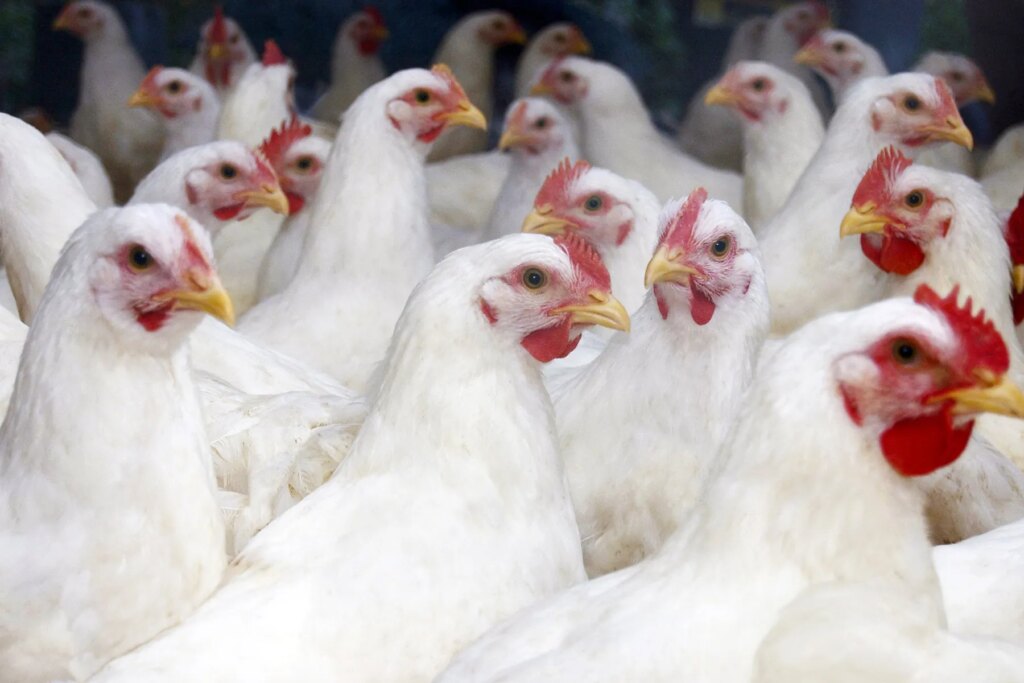May 16, 2024 – Multiple U.S. agencies are working to contain a recent outbreak of avian influenza in cattle to prevent further spread to humans (with the exception of one case reported in early April) and to leverage our response during the COVID-19 pandemic. What’s learned before, during and after the pandemic keeps farmworkers and the public safe.
Fingers crossed, Avian Influenza will be contained and gradually disappear. Or the outbreak could continue to spread among dairy cows and other animals, threatening the health and livelihoods of farmers and others who work with livestock.
Or the virus may change, making it easier to contract and spread among people. If this happens, the worst-case scenario could be a new influenza pandemic.
With so many unknowns, WebMD convened experts from four federal agencies to discuss bird flu prevention, surveillance and “what if” scenarios.
“Communicating to the public what we know, what we don’t know, and how you and your families can stay safe is our top priority at CDC,” said CDC Principal Deputy Director Nirav D. Shah, MD, JD. “We are responding at the federal level and we hope the public will follow suit.”
People should check the CDC, FDA, U.S. Department of Agriculture (USDA), and Administration for Strategic Preparedness and Response (ASPR) websites for the latest information.
Shah said in the online briefing “Avian Flu 2024 – What You Need to Know” co-sponsored by the CDC and WebMD that it is important not only to stay informed about the situation, but also to seek credible sources of information.
“Experimental Burger”
If there’s one important message from this event, it’s that the threat to the public remains low.
Retail milk supplies are safe, but consumption of raw or unpasteurized milk is not recommended. “While the commercial milk supply is safe, we strongly recommend against drinking raw milk,” said Donald A. Prater, DVM, acting director of the FDA’s Center for Food Safety and Applied Nutrition.
As for other foods, thoroughly cooked eggs pose less of a risk than raw eggs, and the country’s beef supply is free of the virus.
Eric Deeble, deputy assistant secretary in the USDA’s Office of Congressional Relations, said federal inspectors have been purchasing and testing meat at retail stores for years. To date, avian influenza virus H5N1 has not been detected in beef.
The USDA has taken the test a step further and recently cooked ground beef from dairy cows in a laboratory. The agency used what Deeble described as an “experimental hamburger” to demonstrate that cooking beef to temperatures of 165 degrees Fahrenheit or higher can kill the virus when necessary.
The federal government now requires all cattle to be tested and No bird flu Get the virus before crossing any state line.The government also provides farmers with compensation for veterinary care and medical expenses business loss personnel related to the outbreak, and provide workers with personal protective equipment (PPE) such as gloves, masks and face shields.
Vaccination is not recommended now
Federal scientists know enough about the H5N1 virus to quickly develop a vaccine against the virus if needed. At this point it’s more about planning ahead. “Vaccines are not currently part of our response,” said Dr. David Boucher, director of infectious disease preparedness and response at the Strategic Preparedness and Response Administration.
Boucher added that if the virus changes and poses a greater threat to humans, “we have the basis for a vaccine.”
One event attendee asked whether the seasonal flu vaccine provides any protection. “Unfortunately, the flu shot you had last year did not provide good protection against bird flu,” Shah replied. “It might work a little bit…but that’s the seasonal flu vaccine. This is something newer.
Treatments stored and ready
Shah said if antiviral drugs are given early in the course of avian influenza infection, the severity or duration of the disease can be shortened.That dairy farmer is Infection with avian influenza Responded earlier this year Oseltamivir (Tamiflu) treatmentFor example.
Shah said when it comes to bird flu symptoms, the fact that the only reported infection so far this year has been for pink eye, also known as conjunctivitis, is interesting.Officials expected to see more typical conditions seasonal flu symptomshe added.
“Influenza is not a new virus,” Boucher said. “For this influenza virus, we did not find any genetic markers associated with resistance to antiviral drugs. This means that if we need to treat H5N1, we can also use antiviral drugs used to treat seasonal influenza.
ASPR already stocks Tamiflu and three other antiviral drugs. “We do have tens of millions of courses that can be distributed across the country if needed,” he added.
“Influenza is a familiar enemy,” Boucher said. That’s why “we now have antiviral drugs and many types of personal protective equipment at the ready.”
science in action
The federal government intends to continue investigating the case. They will continue to monitor emergency room visits, lab test orders and wastewater samples for any changes that suggest the risk of a human pandemic is increasing.
“While we’ve learned a lot, there’s still a lot we don’t know,” Dibble said.
Shah added: “As with any outbreak, this is an evolving situation and things can change. What you’re seeing now is science in action.
For the latest information on avian influenza in the United States, visit CDC H5N1 Avian Influenza: Summary of Current Situation website.

